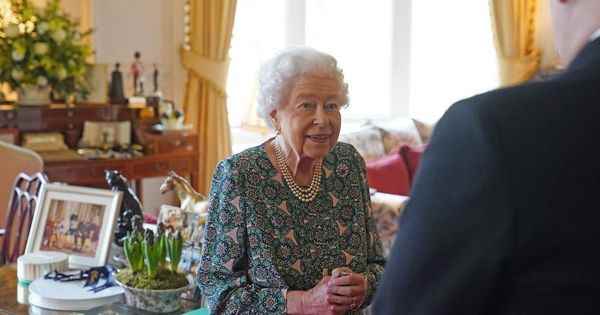Posted ,
Reading 3 mins.
in collaboration with
Dr Christophe de Jaeger (Geriatrician and researcher)
and
Tested positive for Covid-19, Queen Elizabeth II shows mild symptoms, comparable to those of a cold. Aged 95 and vaccinated, is she vulnerable and at risk of serious forms? Dr. Christophe de Jaeger, geriatrician and specialist in the aging of the human body, answers us.
Queen Elizabeth II is positive for Covid-19, we learned from Buckingham Palace on Sunday February 20. For the moment, his state of health is not worrying: his symptoms, “comparable to those of a cold”are “light”. The queen’s state of health allows her to continue performing “light tasks”, while continuing to receive medical supervision. She had been in contact with her son Prince Charles two days before he tested positive for the second time. The 95-year-old queen is doubly vaccinated with a third booster dose. Dr. Christophe de Jaeger, geriatrician and specialist in the aging of the human body, member of the Doctissimo expert committee and author of the book Aging well without drugstells us more about the fragility of the elderly in the face of Covid-19.
Doctissimo: Elizabeth II tested positive for Covid-19. According to Buckingham Palace, she is currently showing only mild symptoms. Given his age, should we worry about his state of health?
Dr Christophe de Jaeger, geriatrician: you have to make a very big difference between being a carrier of the virus and being sick with the virus. In any person positive for Covid-19 and having an advanced age, there is a risk of falling ill because there is a natural fragility that exists: it is immuno-senescence. This means that when over 60, the system is altered and becomes more fragile. At age 95, the risk is even greater. Just having a cold, which is the basis of all coronaviruses, is not a big deal. But for these reasons, the queen must still be watched very carefully. The disease can be more severe, especially if she suffers from other pathologies, such as heart or kidney failure, since these are comorbidities (Elizabeth II had been hospitalized in October and had canceled several appearances at events in December, editor’s note). But I’m sure there’s definitely a lot of attention being paid to the queen.

Even triply vaccinated, are the elderly vulnerable to Covid-10?
Due to immuno-senescence, all elderly people are vulnerable. And the more advanced the immuno-senescence, the less effective the vaccine. But the great interest of vaccination is that it certainly does not offer 100% protection against the virus, but at least it does offer protection, which limits the risk of developing a serious form in an elderly person. . It’s still better than no vaccination at all! When an elderly person develops an illness, we are still happy and relieved that they are vaccinated. People who question the value of vaccination are wrong.
What would you advise an older person positive for Covid-19 to recover?
When a very old person becomes positive, we must first make the link between positivity and the possibility of infecting other people. In this case, she isolates herself until the negative test. If the family is present, they wear the mask and they have lunch and dinner apart from the others. At the same time, monitoring measures must be undertaken. If the elderly person lives alone, we can for example visit him twice a day, take the trouble to telephone him. Check what symptoms are setting in: maybe a cold, a temperature, agnosia. Elements that show us that we are moving to the stage of illness. It must be ensured that she lives normally without lying down in the event of mild symptoms such as a cold. As soon as she begins to have a fever, it is necessary to ensure good hydration with a minimum of 1.5 L to 2 L per day. Finally, it is necessary to eat normally without fasting.
Consult a GP online
What are the worrying symptoms in the elderly and which are an emergency?
When an elderly person is positive, the ideal is to have a pulse oximeter. Indeed, it is necessary to monitor respiratory insufficiency by the drop in saturation: when the oxygen value is below 95%, it is not good. Fever is also observed. Monitoring of temperature and saturation makes it possible to know when to contact the SAMU in the event of an emergency. If a very old person tests positive and is borderline dependent, I recommend telling the GP because things can go downhill in two hours or less. In the event that we have to call him back because things are not going so well, he can react immediately. He will judge the best attitude and can put in place a more useful strategy.
